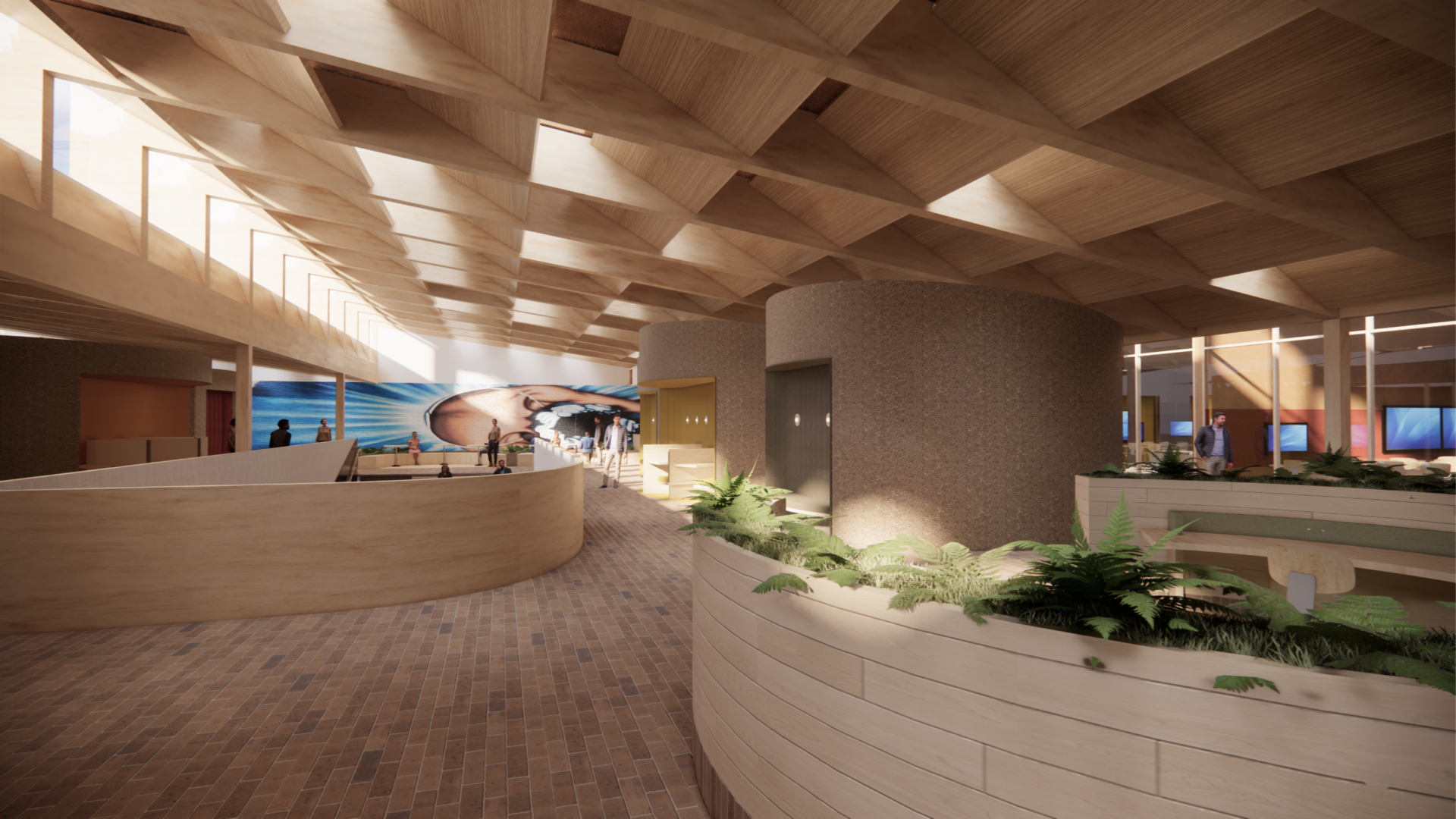
Seeds of Change Past Event
Tickets
Date
Venue
Access
Accessible bathroom, Seating available, Wheelchair accessibleHempcrete is a sustainable construction material and biocomposite made from a mixture of hemp hurds and a binder, used in construction and insulation as a sustainable alternative to concrete or plasterboard. Selected for its low carbon footprint, its provenance and its biodegradability at end of life, Woods Bagot recently chose hempcrete as a key material on the redevelopment of the University of Tasmania’s heritage-listed Forestry Building. At practical completion, the Forestry Building will be the largest example of a commercial use of hempcrete in Australia.
Join a conversation with the designers, manufacturers, and builders prototyping and working with the material, exploring the possibilities of this sustainable alternative to traditionally carbon-intensive materials like concrete and plasterboard. In discussion, Woods Bagot will examine the process of creating hempcrete; the risk and experimentation involved in using these new materials en masse; and the revolutionary potential of adopting circular and sustainable materials in terms of addressing rising construction costs, supply shortages, and a climate crisis.
Participants
Phoebe Settle is a Woods Bagot associate and senior interior designer with fourteen years’ experience across education and workplace sectors. Phoebe is the Melbourne studio’s Global Impact Group (GIG) leader and a champion for circular design and the adoption of regenerative materials in the built environment. Phoebe is the interior design leader on the University of Tasmania Forestry Building, incorporating the largest commercial use of hempcrete in Australia.
Will Brain is a carpenter and hempcrete technician with extensive experience locally and abroad working with hemp-based building materials. As cofounder at RespiraBuilt, Will’s ambitions are to realise a higher standard of genuine sustainable housing through regenerative materials.
Alex Gorton is a project manager at Hansen Yuncken and an in-house hempcrete expert, working closely on the fire testing, product procurement, prototyping and construction planning associated with its use on the Forestry project.
Alastair is a Woods Bagot associate principal with extensive experience in large-scale public buildings. Alastair is the project architect on the University of Tasmania redevelopment project, leading the design and adaptive reuse of the heritage-listed Forestry building.
Date
Tickets
Venue
Access
Accessible bathroom, Seating available, Wheelchair accessibleHempcrete is a sustainable construction material and biocomposite made from a mixture of hemp hurds and a binder, used in construction and insulation as a sustainable alternative to concrete or plasterboard. Selected for its low carbon footprint, its provenance and its biodegradability at end of life, Woods Bagot recently chose hempcrete as a key material on the redevelopment of the University of Tasmania’s heritage-listed Forestry Building. At practical completion, the Forestry Building will be the largest example of a commercial use of hempcrete in Australia.
Join a conversation with the designers, manufacturers, and builders prototyping and working with the material, exploring the possibilities of this sustainable alternative to traditionally carbon-intensive materials like concrete and plasterboard. In discussion, Woods Bagot will examine the process of creating hempcrete; the risk and experimentation involved in using these new materials en masse; and the revolutionary potential of adopting circular and sustainable materials in terms of addressing rising construction costs, supply shortages, and a climate crisis.
Participants
Phoebe Settle is a Woods Bagot associate and senior interior designer with fourteen years’ experience across education and workplace sectors. Phoebe is the Melbourne studio’s Global Impact Group (GIG) leader and a champion for circular design and the adoption of regenerative materials in the built environment. Phoebe is the interior design leader on the University of Tasmania Forestry Building, incorporating the largest commercial use of hempcrete in Australia.
Will Brain is a carpenter and hempcrete technician with extensive experience locally and abroad working with hemp-based building materials. As cofounder at RespiraBuilt, Will’s ambitions are to realise a higher standard of genuine sustainable housing through regenerative materials.
Alex Gorton is a project manager at Hansen Yuncken and an in-house hempcrete expert, working closely on the fire testing, product procurement, prototyping and construction planning associated with its use on the Forestry project.
Alastair is a Woods Bagot associate principal with extensive experience in large-scale public buildings. Alastair is the project architect on the University of Tasmania redevelopment project, leading the design and adaptive reuse of the heritage-listed Forestry building.
